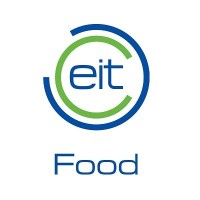Cultivating Change: Women Leading the Way in Agrifood Innovation
December 20, 2024, 10:34 pm

Employees: 51-200
Founded date: 2008
Total raised: $799.31K
In the fertile fields of agrifood innovation, women are sowing seeds of change. The Empowering Women in Agrifood (EWA) programme, backed by the European Institute of Innovation and Technology (EIT), is a powerful catalyst for female entrepreneurs. It’s a bridge connecting ambition with opportunity, nurturing talent in a sector ripe for transformation.
The 2024 edition of the EWA programme has flourished, engaging 120 women from 12 countries. This initiative is not just about numbers; it’s about impact. Over six months, participants have cultivated their skills through mentoring, business coaching, and networking. The result? The birth of 35 startups and €13 million in funding. These figures tell a story of resilience and innovation.
Among the standout participants is Greta Budreikė, co-founder of Tastik. Her journey into the world of alternative proteins began with a simple curiosity about nutrition. She discovered crickets—not just as a food source, but as a sustainable solution to the protein crisis. Tastik’s cricket-based breakfast cereals are a testament to her vision. They’re not just food; they’re a movement towards sustainability.
Greta faced challenges that would deter many. The stigma surrounding insect consumption loomed large. Yet, she turned this obstacle into an opportunity for education. Workshops, articles, and public engagements became her tools. She transformed fear into knowledge, paving the way for acceptance. Her experience highlights a crucial lesson: innovation often requires a shift in mindset.
Then there’s Yulia Logvinovska, co-founder of LUCA. Her vertical farming venture is a fresh take on urban agriculture. Growing greens in the heart of the city, Yulia’s approach is a response to the disconnect between urban life and fresh produce. Her childhood memories of selling vegetables with her grandparents inspired her to bridge this gap. LUCA is not just a farm; it’s a reminder that quality food can thrive in urban settings.
Yulia’s method is as innovative as it is sustainable. Hydroponic farming allows her to control every aspect of growth. It’s like a spa for greens, ensuring they are not only healthy but also delicious. The challenges she faced, from financial hurdles to the unpredictability of war, tested her resolve. Yet, she adapted, learning to navigate the complexities of her environment.
Both Greta and Yulia’s stories underscore a vital truth: women in agrifood are not just participants; they are leaders. The EWA programme equips them with the tools to succeed. Mentorship plays a pivotal role, providing guidance and support. For Greta, her mentor became a beacon of knowledge, helping her refine her business strategy. For Yulia, the timing of the programme aligned perfectly with her launch, allowing her to shape her approach in real-time.
Sustainability is the heartbeat of both Tastik and LUCA. Greta’s choice of cricket protein minimizes ecological impact, while Yulia’s vertical farming reduces resource consumption. They are not just building businesses; they are crafting a narrative of responsible consumption. Their innovations challenge the status quo, offering solutions to pressing global issues.
The EWA programme is a testament to the power of community. It fosters connections among women entrepreneurs, creating a network of support. This collaboration is vital in a sector often dominated by traditional practices. By sharing experiences and insights, these women are rewriting the rules of agrifood.
The future of food lies in the hands of these innovators. Alternative proteins and urban farming are not just trends; they are necessities. As the global population grows, so does the demand for sustainable solutions. Greta and Yulia are at the forefront of this movement, proving that change is possible.
Their journeys inspire other women to take the leap into entrepreneurship. The message is clear: action is the currency of success. Small steps can lead to monumental shifts. Each decision, each risk taken, contributes to a larger vision.
As we look ahead, the impact of the EWA programme will continue to ripple through the agrifood sector. The success stories emerging from this initiative are not isolated; they are part of a larger tapestry of change. Women are not just participants in this narrative; they are the authors.
In conclusion, the EWA programme is more than a support system; it’s a revolution. It empowers women to challenge norms, innovate, and lead. The stories of Greta and Yulia are just the beginning. As they cultivate their dreams, they inspire a new generation of women to join the movement. Together, they are shaping the future of sustainable food systems, one innovative idea at a time. The soil is rich, and the potential is limitless.
The 2024 edition of the EWA programme has flourished, engaging 120 women from 12 countries. This initiative is not just about numbers; it’s about impact. Over six months, participants have cultivated their skills through mentoring, business coaching, and networking. The result? The birth of 35 startups and €13 million in funding. These figures tell a story of resilience and innovation.
Among the standout participants is Greta Budreikė, co-founder of Tastik. Her journey into the world of alternative proteins began with a simple curiosity about nutrition. She discovered crickets—not just as a food source, but as a sustainable solution to the protein crisis. Tastik’s cricket-based breakfast cereals are a testament to her vision. They’re not just food; they’re a movement towards sustainability.
Greta faced challenges that would deter many. The stigma surrounding insect consumption loomed large. Yet, she turned this obstacle into an opportunity for education. Workshops, articles, and public engagements became her tools. She transformed fear into knowledge, paving the way for acceptance. Her experience highlights a crucial lesson: innovation often requires a shift in mindset.
Then there’s Yulia Logvinovska, co-founder of LUCA. Her vertical farming venture is a fresh take on urban agriculture. Growing greens in the heart of the city, Yulia’s approach is a response to the disconnect between urban life and fresh produce. Her childhood memories of selling vegetables with her grandparents inspired her to bridge this gap. LUCA is not just a farm; it’s a reminder that quality food can thrive in urban settings.
Yulia’s method is as innovative as it is sustainable. Hydroponic farming allows her to control every aspect of growth. It’s like a spa for greens, ensuring they are not only healthy but also delicious. The challenges she faced, from financial hurdles to the unpredictability of war, tested her resolve. Yet, she adapted, learning to navigate the complexities of her environment.
Both Greta and Yulia’s stories underscore a vital truth: women in agrifood are not just participants; they are leaders. The EWA programme equips them with the tools to succeed. Mentorship plays a pivotal role, providing guidance and support. For Greta, her mentor became a beacon of knowledge, helping her refine her business strategy. For Yulia, the timing of the programme aligned perfectly with her launch, allowing her to shape her approach in real-time.
Sustainability is the heartbeat of both Tastik and LUCA. Greta’s choice of cricket protein minimizes ecological impact, while Yulia’s vertical farming reduces resource consumption. They are not just building businesses; they are crafting a narrative of responsible consumption. Their innovations challenge the status quo, offering solutions to pressing global issues.
The EWA programme is a testament to the power of community. It fosters connections among women entrepreneurs, creating a network of support. This collaboration is vital in a sector often dominated by traditional practices. By sharing experiences and insights, these women are rewriting the rules of agrifood.
The future of food lies in the hands of these innovators. Alternative proteins and urban farming are not just trends; they are necessities. As the global population grows, so does the demand for sustainable solutions. Greta and Yulia are at the forefront of this movement, proving that change is possible.
Their journeys inspire other women to take the leap into entrepreneurship. The message is clear: action is the currency of success. Small steps can lead to monumental shifts. Each decision, each risk taken, contributes to a larger vision.
As we look ahead, the impact of the EWA programme will continue to ripple through the agrifood sector. The success stories emerging from this initiative are not isolated; they are part of a larger tapestry of change. Women are not just participants in this narrative; they are the authors.
In conclusion, the EWA programme is more than a support system; it’s a revolution. It empowers women to challenge norms, innovate, and lead. The stories of Greta and Yulia are just the beginning. As they cultivate their dreams, they inspire a new generation of women to join the movement. Together, they are shaping the future of sustainable food systems, one innovative idea at a time. The soil is rich, and the potential is limitless.
